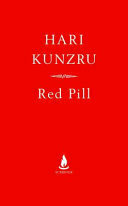
After receiving a prestigious writing fellowship in Germany, the narrator of Red Pill arrives in the Berlin suburb of Wannsee and struggles to accomplish anything at all. Instead of working on the book he has proposed to write, he takes long walks and binge-watches "Blue Lives"--a violent cop show that becomes weirdly compelling in its bleak, Darwinian view of life--and soon begins to wonder if his writing has any value at all. Wannsee is a place full of ghosts: across the lake the narrator can see the villa where the Nazis planned the Final Solution, and in his walks he passes the grave of the Romantic writer Heinrich von Kleist, who killed himself after deciding that "no happiness was possible here on earth." When some friends drag him to a party where he meets Anton, the creator of "Blue Lives," the narrator begins to believe that the two of them are involved in a cosmic battle, and that Anton is "red-pilling" his viewers--turning them towards an ugly, alt-rightish worldview--ultimately forcing the narrator to wonder if he is losing his mind. A literary thriller in the truest sense, the thrills in Red Pill derive as much from the virtuosic dissection of ideas as they do from the almost Lynchian atmosphere that is evoked. He conjures up a narrative that is gripping, disturbing, tender and often (and perhaps surprisingly) funny. This is the most enjoyable and stimulating novel of the new decade. A future classic.